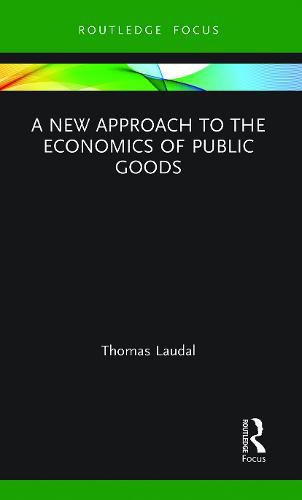Readings Newsletter
Become a Readings Member to make your shopping experience even easier.
Sign in or sign up for free!
You’re not far away from qualifying for FREE standard shipping within Australia
You’ve qualified for FREE standard shipping within Australia
The cart is loading…






Public goods are typically defined only in reference to the good itself but, as this book argues, the public goods can be better understood if contextual variables are incorporated. This book discusses the production and provision of public goods. It asserts that changes related to public goods are better understood if the category of goods are not decided solely by the properties of the good itself. We also need to focus on how the enabled utility of a good is influenced by the production and the provision of the good.
The book opens with a brief introduction to common conceptions of public goods and a review of the existing literature - highlighting the limitations of current definitions of public goods. It presents a new multi-layered approach to public goods. This has implications for the discourse on public goods and for our understanding of the societal and environmental impact of public goods. The implications are illustrated in several areas; public goods in ancient history, privatization, innovation, competitiveness and prices, democracy and political standards, and economic growth.
The book provides a provocative argument for a new way to analyze public goods which will appeal to scholars and students interested in the economic analysis of public goods, arguments regarding the privatizing or nationalizing of production and services, and method of modelling and measuring sustainable business activities.
$9.00 standard shipping within Australia
FREE standard shipping within Australia for orders over $100.00
Express & International shipping calculated at checkout
Public goods are typically defined only in reference to the good itself but, as this book argues, the public goods can be better understood if contextual variables are incorporated. This book discusses the production and provision of public goods. It asserts that changes related to public goods are better understood if the category of goods are not decided solely by the properties of the good itself. We also need to focus on how the enabled utility of a good is influenced by the production and the provision of the good.
The book opens with a brief introduction to common conceptions of public goods and a review of the existing literature - highlighting the limitations of current definitions of public goods. It presents a new multi-layered approach to public goods. This has implications for the discourse on public goods and for our understanding of the societal and environmental impact of public goods. The implications are illustrated in several areas; public goods in ancient history, privatization, innovation, competitiveness and prices, democracy and political standards, and economic growth.
The book provides a provocative argument for a new way to analyze public goods which will appeal to scholars and students interested in the economic analysis of public goods, arguments regarding the privatizing or nationalizing of production and services, and method of modelling and measuring sustainable business activities.